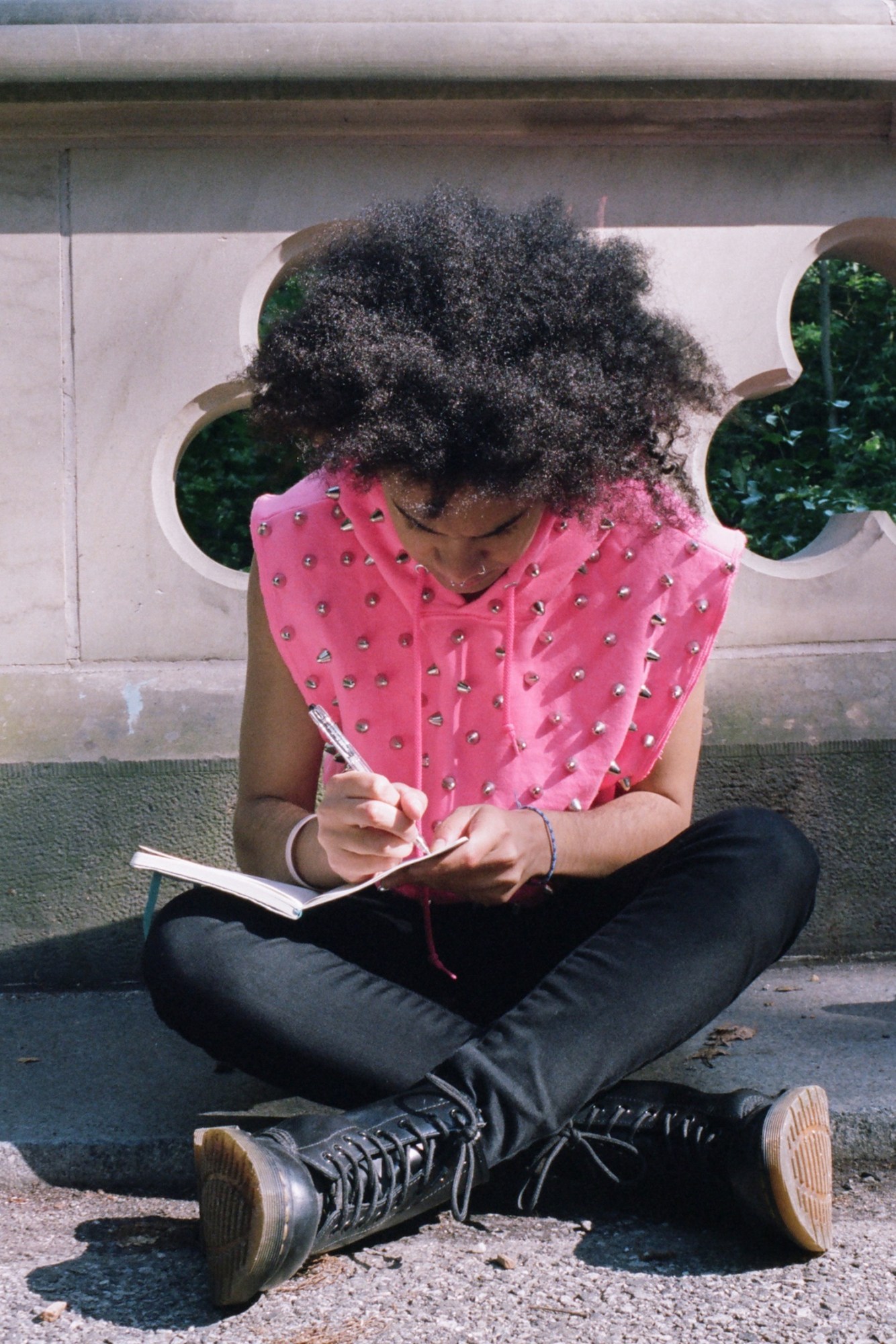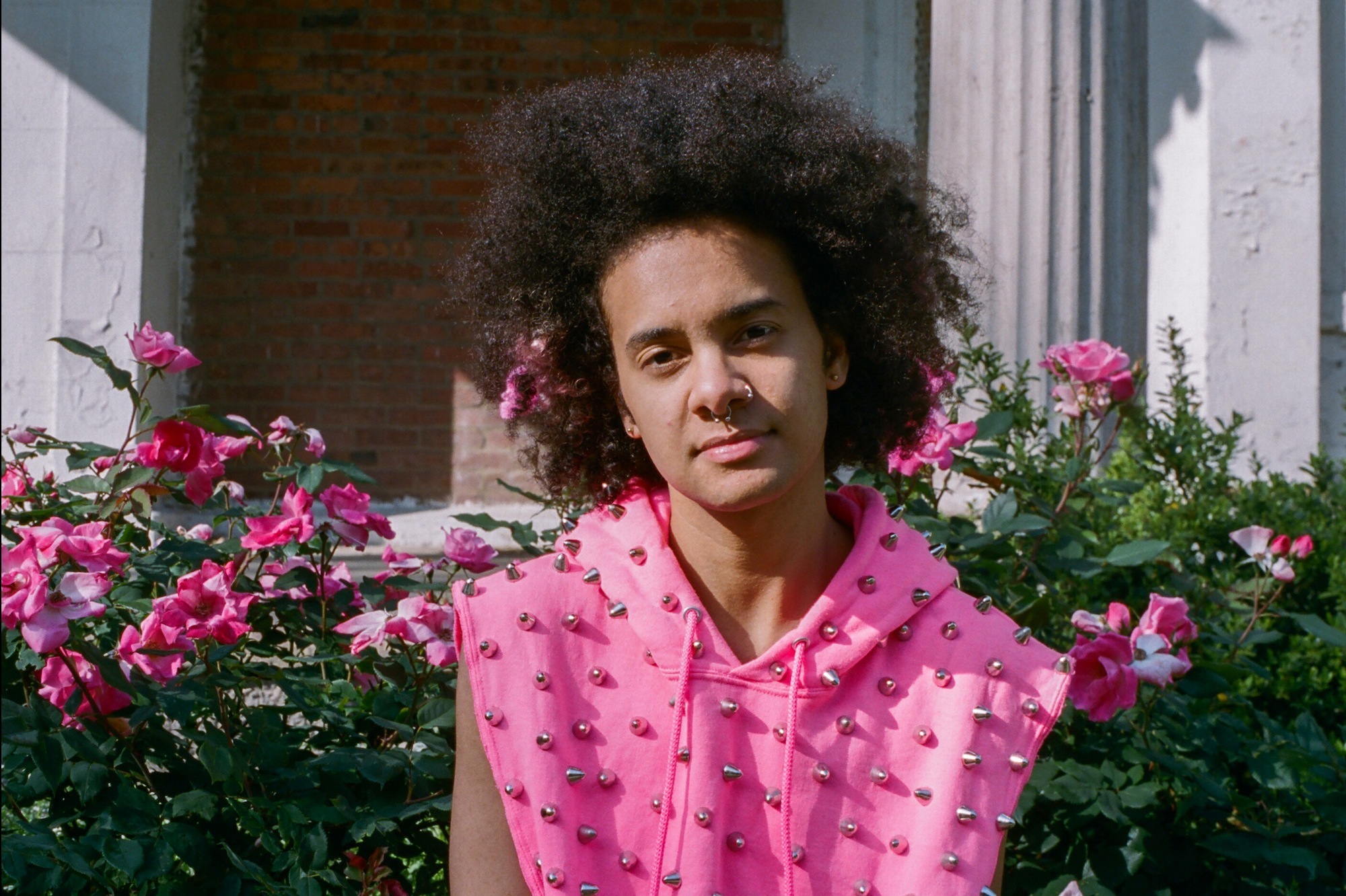Tyler Ford is a brilliant poet and critical writer focused on LGBTQA advocacy in the media, and may have one of the most infectious laughs you’ve ever heard. For the past three years Tyler has been working as a staff writer for Tavi Gevinson‘s Rookie Magazine. They are now writing an ongoing advice column for MTV in which they will answer questions informed by their experiences as a queer, agender person of color (that prefers the “they” pronoun as used in this article). They base much of their advocacy around becoming a source of representation, as they understand the incredible significance of seeing a reflection of yourself in the media. Most recently, they have been working with Miley Cyrus on the Happy Hippie Foundation; an organization set to rally young people to fight injustice facing homeless youth, nearly half of whom identify as LGBTQA.
It felt powerful to sit and talk to Tyler in the same neighborhood that Sylvia Rivera and other trans women started the Stonewall riots. 50 years later, we sat in the back of a ice cream shop, in a very different West Village, and discussed what has changed for queer youth and what has yet to happen.
Tell us and the world who you are!
My name is Tyler Ford, I’m 24 years old, I’m from Boca Raton Florida, I live in Brooklyn, and I just ate four desserts. I feel like I’m on a cloud.
How did you get involved with Miley’s Happy Hippie Foundation? Did they reach out to you, or did you reach out to them?
No. So Miley reached out to Ariana Grande, who is my best friend, to make a video with her. They did a Backyard Sessions video together. Ari was like, “Oh wait, my best friend is trans and they’re a writer, and they’re really smart, you should be in touch with them.” Miley said “Totally, I want them to be involved as much as they want to be involved.” So I met Miley that week when they filmed their video together, and Miley introduced me to all the Happy Hippie people and we started talking. That’s how I did my first video.
My first video was about my coming out story and my coming out process and just about coming out in general, because my narrative is not typical and because I think a lot of coming out culture focuses on: “Okay you come out once and it’s done. You come out to everyone, let’s have a party, or it went really badly but that’s it and now you’re out for the rest of your life.” And that’s not how it goes. Coming out is a lifelong process.
How do you feel your coming out process does differ from the norm?
How many times in my life have I come out as different identities? I came out as trans, as a trans guy, and two years later I stopped hormones and I was like, “I am not sure what I am or where I lie on the gender spectrum.” I didn’t know what pronouns I wanted, I didn’t know how I wanted people to refer to me, and I didn’t know how I wanted to look. I was experimenting and figuring out what I wanted. I was in this weird phase where I didn’t have any labels and I didn’t know where I wanted to be or where I wanted to go and then eventually I came across the term ‘agender’ and I was like, “Okay, this is me. This is what applies.” So I came out again as agender and as someone who used they/them/theirs pronouns.
I think my story differs in that I haven’t seen stories from a lot of people identifying as a binary trans identity, and going on hormones, and then going off hormones and not “de-transitioning,” but identifying as a non-binary person. When I was first going off hormones that was super scary for me, to not have anyone to look to. I didn’t see anyone anywhere with a similar story, and that scared me because I didn’t know what was going to happen; what was going to happen to my body, or what I was going to end up looking like. So I started sort of going into uncharted territory, and that was terrifying.

What else do you think trans representation in the media is lacking?
What isn’t missing? I mean clearly people like me are missing: non-binary people, people of color. I think anyone who has a story that’s different from the narrative that’s fed to everyone of, “I’ve known since I was a child, I am now binary-identified and my whole narrative fits in a nice box.” Not that everyone’s in the media does, but it’s often packaged that way. Certain parts of the story are not highlighted because it doesn’t fit neatly.
I feel like a lot of that also happens because of the way we (as trans people) are, from the beginning, told we need to package our own experiences. Yeah, that’s how I got on hormones. I knew all the answers I had to give to fit that Harry Benjamin Standards of whatever the hell they are [the Harry Benjamin Standards of Care is the system in place that, while meant to ensure structure and safety for transitioning people, often prohibits them from getting the care they need by forcing them to go through a number of gatekeeping practices and prove their identities in ways that might not align with their experience]; I wrote about that for Rookie. My therapist, who I had to go to to get the letter I needed to allow me to go on testosterone, told me I couldn’t wear purple shoes anymore. I was like, “First of all, they’re maroon, second of all, goodbye.” He looked at my chest and said, “You’re gonna have to cut those off.” It was bad.
Do you see an impact being visible?
There’s an impact for sure. There are a lot of people who, thankfully, have used my pronouns, and who have educated other people on using my pronouns. That’s something that’s relatively new, and there are people, like young young teens who are like, “Tyler is agender, and their pronouns are this and you need to stop using these other pronouns and respect Tyler!” And that’s really cool and nice. I met this trans guy a couple weeks ago. He’s 19 now, and he recognized me from The Glee Project. He told me about how I inspired him and how it was nice to see me on TV and see a reflection of himself, especially as a person of color. That happened when he was 16, which was a very formative time, and I was super touched to have been that for someone.
Do you consider yourself to be political?
I guess… I feel like my existence is political. My existence is resistance.
Credits
Text and photography Mars Hobrecker and Leah James
